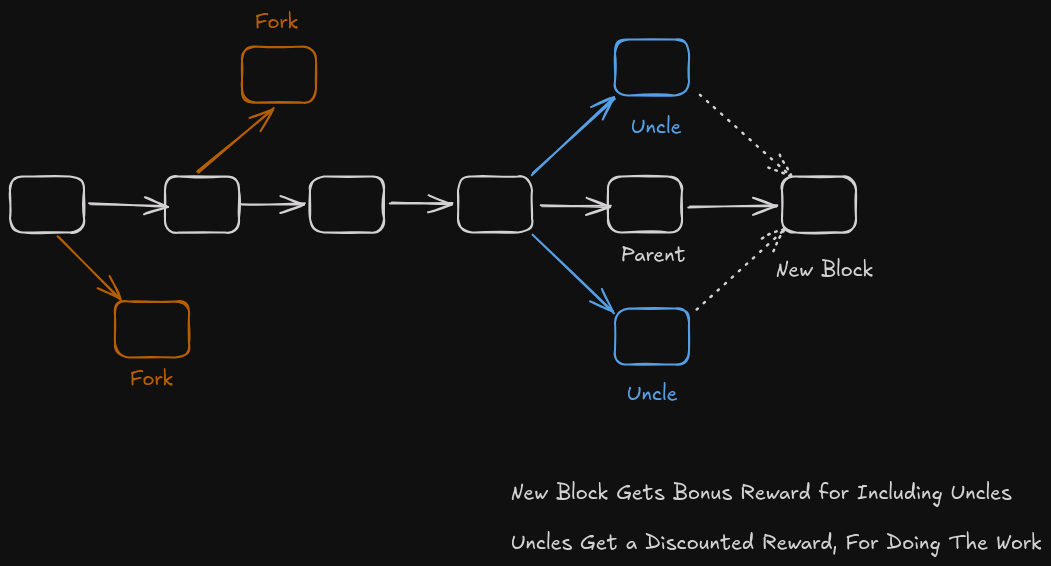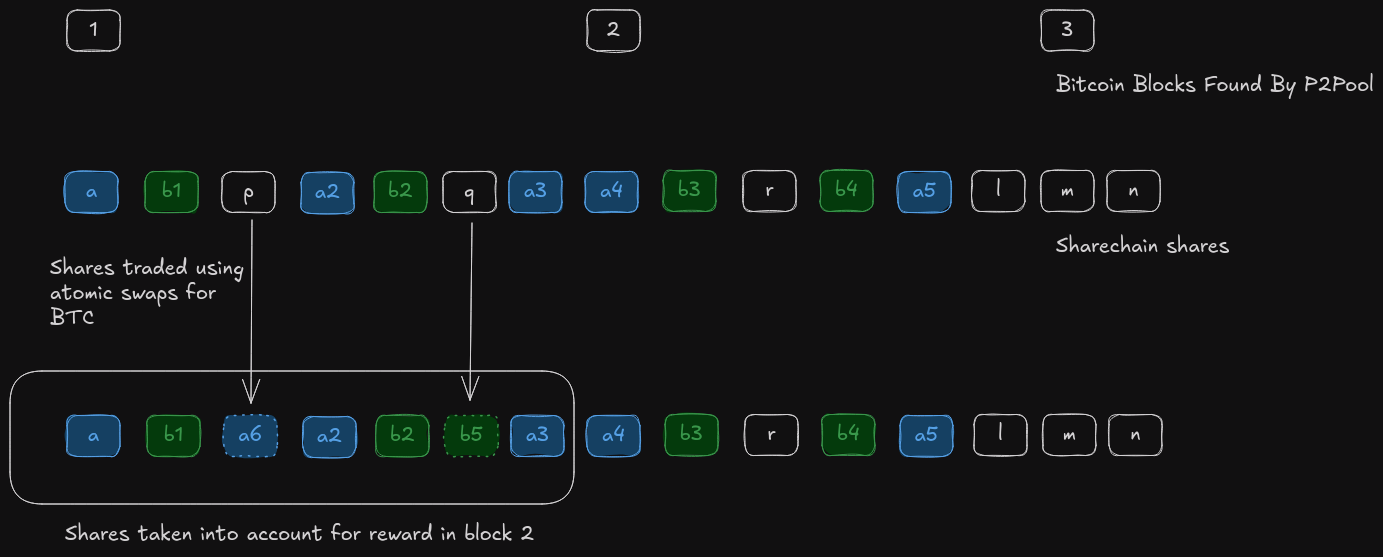Rebooting P2Pool For Bitcoin
P2Pool for bitcoin was a decentralised mining pool for bitcoin that provided miners way to build block templates and earn payouts directly from the the block coinbase. In this post, I describe an approach to reboot P2Pool. The pool is being developed in Rust and leans on excellent libraries like rust-bitcoin and libp2p. The repository is here on github: https://github.com/pool2win/p2pool-v2
P2Pool Limitations
There were two problems that lead to P2Pool losing favour with miners:
- P2Pool had a simple linear blockchain where each block is a share found by a miner. The share identifies the miner and the blocktemplate used by the miner for mining the share. However, since P2Pool used a linear chain, a lot of the shares were orphaned. Miners were therefore not paid for all their work.
- The payouts for miners directly from the coinbase stop being economically viable as fee rates went up. Further still, as some mining hardware put restrictions on the coinbase size, P2Pool could not accommodate enough miners to reduce variance in payouts for miners.
The need for P2Pool is found in the various efforts to reboot P2Pool. Chris Belcher wrote a proposal describing a way to scale payouts by using payment channels instead of paying directly from the coinbase. His proposal was aware of a shortcoming that the payouts were managed by a centralised hub. He proposed a solution to address that by using a federation of hubs. However, the problem of high number of orphans remained in this design.
Rebooting P2Pool
The above mentioned problems can be solved by borrowing solutions and techniques used in other blockchains.
Uncle Blocks
Uncle blocks were first introduced by the Ethereum blockchain to handle faster block times. If a block was orphaned but referenced to by future blocks as an uncle blocks, both the uncle block and the referring block earned block rewards. The most work chain was replaced by the heaviest observed sub-tree or GHOST.
The GHOST solution has been analysed in academic research and its problems have been well studied. We can lean on this research and use uncle blocks to substantially reduce the number of orphan blocks.

The image above shows an example chain with uncle blocks that will help scale the pool to accommodate larger number of miners than with a linear chain as in the original P2Pool.
Atomic Swaps of Shares
We propose using a limited transaction engine on the share chain to support atomic swaps between the shares on the P2Pool share chain and bitcoin.
The idea is that market makers or larger miners will buy the shares of smaller miners for bitcoin using atomic swaps. When the payout period arrives, the larger miners or the market makers who have purchased the shares of the smaller miners are paid for the shares of the smaller miners too.
The image below shows shares mined by different miners bitcoin blocks at the top, and the P2Pool chain in two different stages. The shares $p$ and $q$ are bought by miners $a$ and $b$. In this case the payout for share $p$ will go to miner $a$ and for $q$ will go to miner $b$. The miners that found $p$ and $q$ have already received bitcoin from miners $a$ and $b$ at price the trading parties agreed on.

Such a solution is non-custodial and allows for a decentralised market place for mining shares.
Future Work
Once the above solution is built, we can work on scaling the chain by allowing increased number of uncles, and we can develop new payout mechanisms like using atomic swaps over lightning network or using Ark or any other layer twos that become possible on bitcoin as bitcoin evolves.